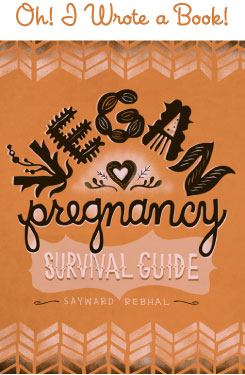On the first Monday of every month, we take on a ‘mission’ – a shift or habit or inspiration – to work on together. There’s strength (and support) in numbers! On the last Thursday of the month, we reconvene to see how far we’ve come.
#6
Are you aware of how much plastic passes through your kitchen? Me, I consider myself a pretty savvy shopper – I buy in bulk, I shop at co-ops and produce stands, and I rely primarily on whole, unprocessed foods. Still . . .
Somehow, each month, I’m filling up trash bags with discarded plastic. Margarine tubs. Yoghurt containers. Lids and pull tops and safety seals. Juice/smoothie bottles. Snack wrappers. Gallon jugs. CLAMSHELLS! (ooh I hate those non-recyclable monsters so much!). That’s a lot of plastic, and plastic is oil!
Of course, I’m sure you’re recycling all that plastic, right? But I’ll tell you what’s even better than recycling: never even using. If you can omit it in the first place, you’re leaps and bounds better than trying to re-use it. And so that’s our goal for this month: Reduce the Plastics in Our Groceries.
This Mission is not about perfection, because it would be damn near impossible – now – to eliminate plastic completely. But, this Mission IS about choices. We can’t all do everything, always (and nor should we try). But what we can do is be aware. We can move with intention. When faced with the option of ‘glass bottle X’ vs ‘plastic bottle Y’, we can make the mindful choice. We can alter our habits to suit our ambitions, oh yes we can.
Are you old enough to remember the 80′s, when styrofoam was everywhere? (I am!) It was everywhere! Styrofoam is so antiquated now, virtually non-existent and totally taboo. That’s because of consumer demand; a campaign by people just like us. We can eliminate plastic too, and end our dependency on petroleum. It starts out small to make a snowball . . .
[Here's the one exception: the bulk bin allowance. For the sake of this Mission, it's okay to use plastic bags for bulk/produce as long as you are re-using them. So no grabbing a brand new baggie, but yes bring your used plastic bags / plastic tupperwares, and fill them from the bins. Fair?]
So, my socially conscious, totally fabulous friends: do you choose to accept this Mission??
BONZAI!

-
http:www.memorableceremonies..com Maureen Thomson
-
http://indiearsenal.com Farmingtheburbs
-
april
-
http://www.herveryown.com akeeyu
-
http://hollowstar.com J
-
http://www.sara-and-company.tumblr.com/ Sara
-
http://www.rockstarknits.wordpress.com Shana
-
http://calcioedamore.blogspot.com torie
-
http://www.melissaottdesign.com melissa
-
laurel
-
Nathan



